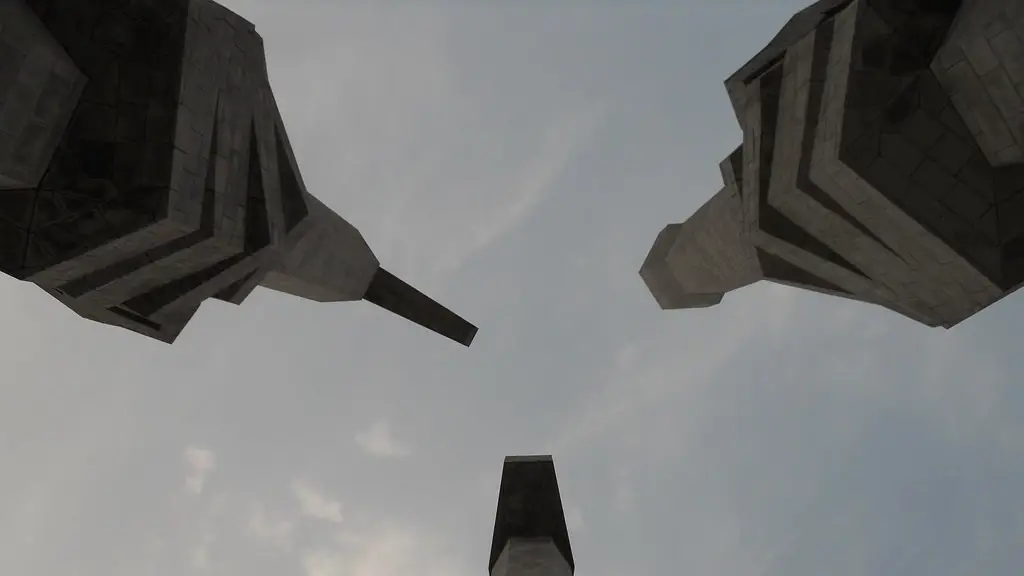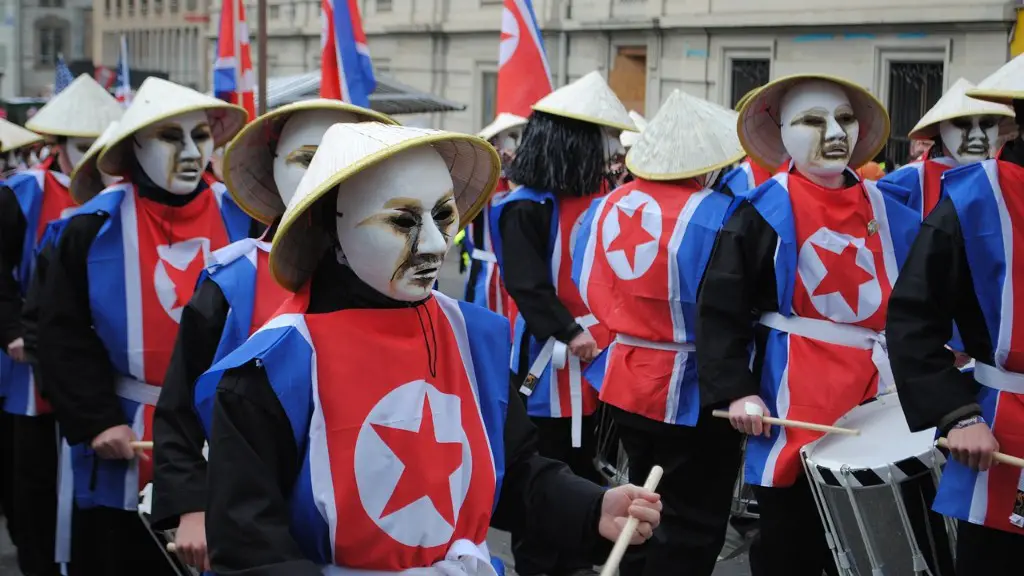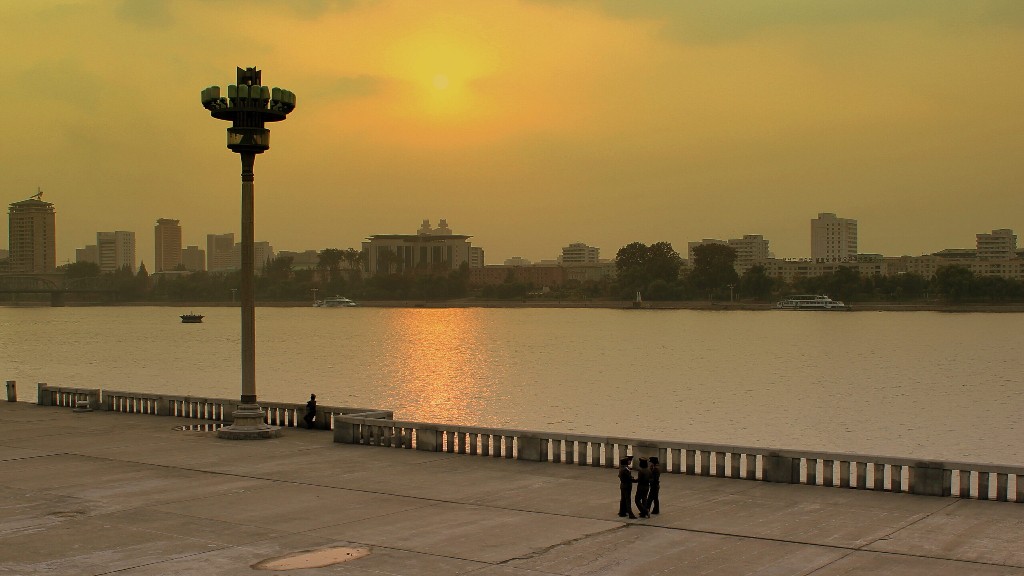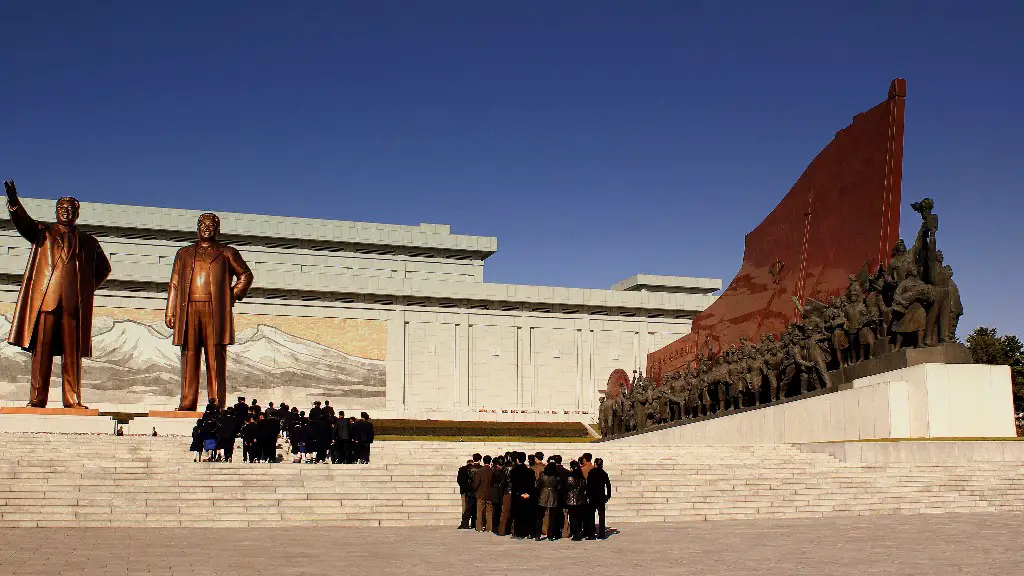The Usual Assumptions
When it comes to North Korea, many assumptions come to mind. Some will immediately think of dictators, nuclear weapons, and an authoritarian regime that terrorizes its citizens. But there are also many misconceptions about North Korea and its posture towards the international community. It is often assumed that the country is aggressive and warmongering, but the reality is more complex than what the media points to.
North Korea’s past and present has been marred by conflict, often in its own backyard. Its policy is typically aggressive in nature and many worry that conflict could flare up with neighbouring countries or even with the US. This is a valid concern as North Korea has no hesitation in using military force if its own interests are threatened. But this must be kept in proportion when considering the possibility of North Korea actually attacking.
The Status Quo
North Korea has been relatively inactive in recent years. This does not mean that its potential for becoming a destructive force has been eliminated however. North Korea’s nuclear weapon programme continues to be active and their rhetoric towards the US and its allies is often aggressive. It is worth noting though, that this rhetoric is for the most part psychological warfare, designed to keep its bargaining power intact.
What has been observed in recent years, is that North Korea’s posture is aimed more at maintaining the status quo, rather than provoke outright conflict. This was observable during the 2018 Winter Olympics held in South Korea, where Kim Jung Un sent a delegation to take part in the games. This was seen as a sign that the country was willing to come to the table and de-escalate the decades-long tensions between the two countries.
The same has applied to its relations with the US. Despite President Trump’s harsh rhetoric and sanctions, North Korea has continued to maintain an overall neutral stance, with negotiations continuing behind the scenes over the years. This has painted a much different picture than what is often propagated in the media.
What Could Be At Stake
Though it may appear that North Korea is not currently interested in violent conflict, opinions differ on the potential for the country to attack another. Many experts agree that the risk of North Korea launching an attack is low, but still present. This could increase if the country brings its nuclear program to a larger level, and is willing to risk global condemnation and sanctions, set economy further back.
The threat of North Korea attacking though, should not be taken lightly. In 2017 the country’s foreign minister threatened to launch a missile attack on the US territory of Guam. Whether this was designed to create terror or test the waters for a more belligerent stance is unclear, but it serves as an example of North Korea’s willingness to use threats and violence as a way to assert itself.
Another danger is the possibility of North Korea’s aggression escalating further into open conflict. North Korea has conducted numerous military drills in the vicinity of its border with South Korea and there have been incidents of North and South Korean troops skirmishing over land disputes. This proves that both countries have no hesitation in escalating tensions if situations so dictate.
What Could be the Causes?
At the heart of the matter, the cause of any potential attack by North Korea is unlikely to be its own aggression, but rather a misreading of the situation. North Korea is in a precarious position and its leadership is keen to maintain the status quo. Any foreign aggression towards the country could be seen as an attack on its sovereignty and could easily be misconstrued as an act of war.
A worst-case scenario could occur if the US were to implement a surprise attack on North Korea as a show of strength. North Korea is well aware of its limitations and its military capability tend to be in its own backyard. If faced with any direct threats, the government is likely to respond in kind and could cause a large-scale armed conflict.
What Could be the Consequences?
The consequences of such a conflict would be catastrophic for both sides. It would lead to a loss of life, damage to infrastructure and could even cause a nuclear event. To prevent this from happening, it is essential that both North Korea and the US take a step back and focus on diplomatic solutions. Open dialogue and meaningful negotiations are key to finding a peaceful solution and avoiding a devastating war.
Though the risks of a direct attack by North Korea are low, this should not be taken as an indication that the country is willing to stand by and allow foreign aggression. North Korea does have a tendency to react aggressively to foreign threats and could easily miscalculate a situation, leading to a full-scale conflict. The international community must therefore be vigilant and make sure that any diplomatic dealings with North Korea are done openly and that any potential misunderstandings are swiftly managed.
What Could be Diplomatic Solutions?
Though North Korea is not looking to attack another country, it is clear that there is a need for dialogue and diplomatic action to ensure the country’s stability. The best way to achieve this is through sustained and open negotiations between North Korea and the US, as well as other countries in the region. This could include steps such as sanctions relief, economic aid, and open trade deals.
Such negotiations could also lead to a disarmament of North Korea’s nuclear weapons. This could lead to a significant reduction in tensions and ultimately allow the country to open up to the global economy. The North Korean people could benefit from increased economic activity and the international community could be further assured of the country’s stability.
Humanitarian Outlook
Despite the apparent tensions between North Korea and the world, the North Korean people continue to live on, despite the odds. Thousands of North Korean refugees are crossing the border every year in search of a better life, and many have found shelter in neighboring countries. This serves as a reminder that underneath the political tensions, the people of North Korea are real human beings and need to be considered in any diplomatic action.
It is also worth noting that much of the economic privation of the country can be attributed to decades of economic mismanagement and foreign interference. To reduce the risk of violence, it is essential that economic sanctions are lifted and economic aid is provided to the North Korean people. This could include sustained energy and food aid and could help create a more stable and prosperous country.
International Efforts
International efforts are also essential to help deescalate the situation, both politically and economically. Many countries are already providing humanitarian aid to North Korea, and many have called for further open dialogue between North Korea and the international community. Such efforts have been somewhat successful, with North Korea showing greater openness to negotiations in recent years.
At the same time, the international community must also remain vigilant and consistent in its message and efforts. This could involve further arms control initiatives, as well as targeted economic sanctions aimed at creating a more diplomatic approach. Countries must also ensure that North Korea does not have the capability of developing weapons of mass destruction. This could serve to further reduce the potential for conflict and keep the peace in the region.
Conclusion of the Issue
Though the threat of North Korea attacking is low, it is still present. Therefore, it is essential that all countries take a measured approach to diplomatic dealings with the country, and strive towards a peaceful resolution to the current situation. This could involve economic and humanitarian aid, as well as open dialogue and negotiations. This could help create a safer and more prosperous future for the people of North Korea, and help maintain peace and stability in the region.




